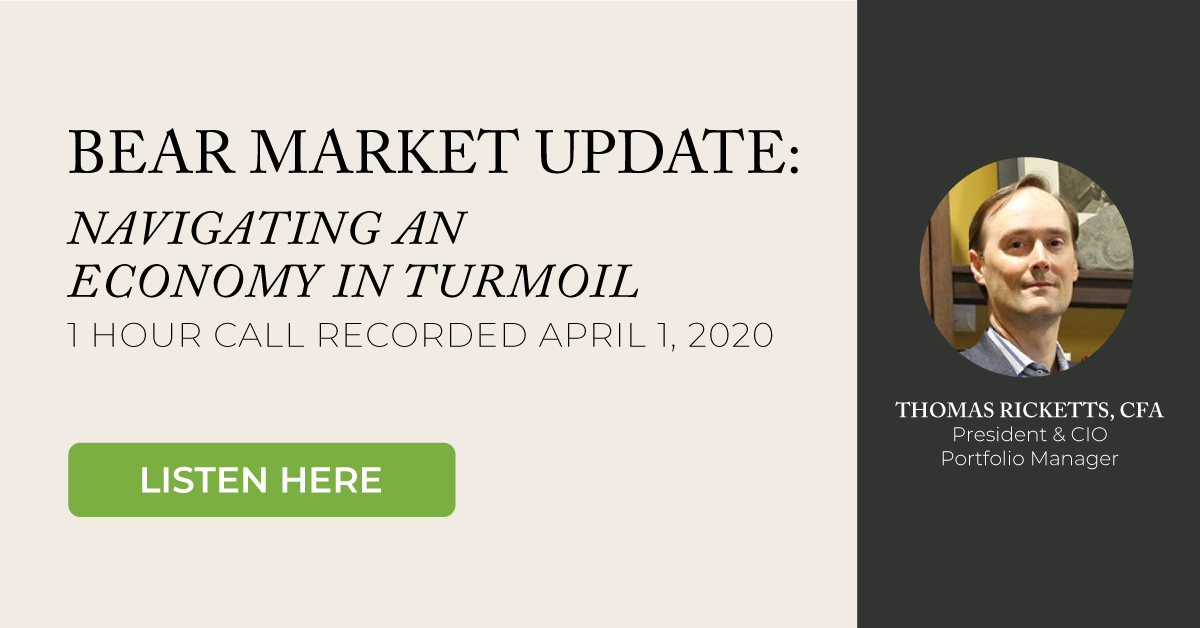Evolutionary Tree recently recorded an audio market update with firm president and CIO, Thomas Ricketts, to discuss the current bear market and provide long-term and straightforward perspective. As Mr. Ricketts explains, the key is to identify the investable secular growth trends poised to continue pushing forward regardless of the economic backdrop. A potential recession won’t stop growth for every company. For leading innovators driving powerful secular trends, the current stay-at-home and work-at-home dynamics may accelerate adoption of certain innovations and evolutionary shifts the firm owns in client portfolios. Listen (2 min 27 sec) or read Mr. Ricketts partial response on this topic below.
NOTE: This is a partial excerpt of a more in-depth audiocast, Bear Market Update: Navigating an Economy in Turmoil. The 1-hour audiocast includes information on the investable growth trends that may power through the current recession and into the next decade.
The content of this call is presented for educational and informational purposes only. Forward-looking statements are not recommendations to buy or sell any security and reflect our own opinions and estimates. Investing in equity securities involves risk and principal loss is possible. Past performance does not guarantee future results.
See below for a segment of the excerpt:
"It turns out that recessions and crises often accelerate secular growth trends and the adoption of costsaving innovation … Why is that? When we’re in a crisis or recession, everyone’s looking for cost-saving efficiencies. Oftentimes, innovations can drive that - they are solutions to the problem.
It turns out in this particular crisis, which is so unusual, that everyone is working from home. That dynamic has accelerated a lot of the secular trends represented in this portfolio. Examples include cloud computing, which can lower technology costs, accessing applications over the web through software as a service. This is seeing acceleration. Cloud-based IT security is also seeing accelerated adoption … We think that the behavior of working in a remote fashion won’t go away. The shift to the cloud will continue. (The current environment) just accelerates that.
On the consumer side, you have families sheltering at home. They’re bored. What are they doing? They’re streaming video and watching YouTube. They’re watching Netflix … They’re afraid to go out to stores so people are relying more on e-commerce and food delivery. So the shift from traditional retail to e-commerce is still accelerating.
This is one of the main points that gets me most excited. Obviously, I’m not happy about a pandemic, but it is actually accelerating the future … If I were to have one phrase describing what’s happening, I would call this the great digital acceleration … We’re going through a digital acceleration that I think is poised to continue."



